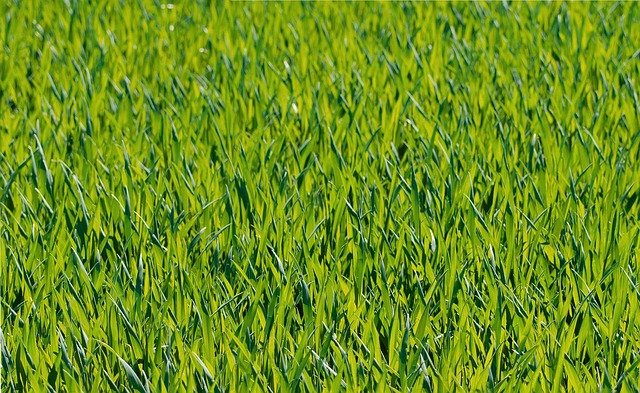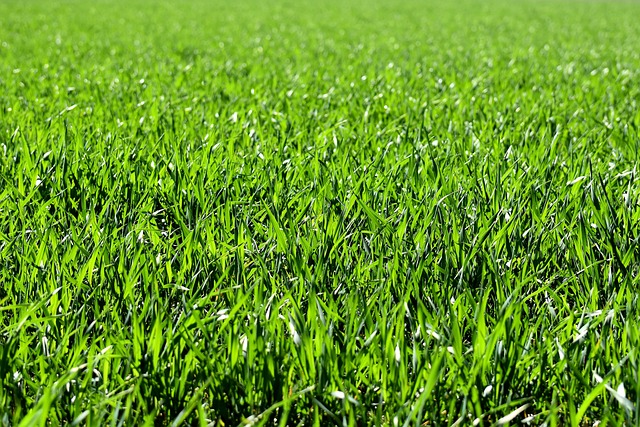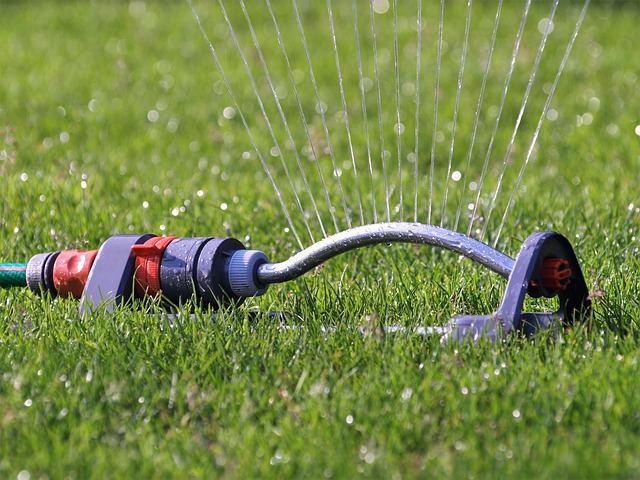Industrial weed control along pipelines near Centennial requires a multifaceted approach. Understanding lawn plant watering needs and environmental factors is key, as different grass types have distinct water requirements. Effective strategies involve identifying common weeds like annual grasses and broadleaf weeds, using targeted herbicides and mechanical methods while adhering to regulations. Regular maintenance and early intervention prevent problems, conserving water resources and protecting infrastructure. Optimizing watering schedules with spot-spraying techniques promotes efficient water usage, preventing contamination and fostering sustainable coexistence between landscapes and critical systems in Centennial.
In the quest for a lush, vibrant lawn, efficient water management is key. This article explores strategies to optimize watering schedules for optimal plant health and conservation. We delve into understanding the unique water needs of lawn plants, implementing effective industrial weed control techniques, especially near sensitive pipelines in areas like Centennial. By combining these practices, homeowners can ensure their lawns thrive while minimizing water wastage.
- Understanding Watering Needs of Lawn Plants
- Implementing Industrial Weed Control Strategies
- Optimizing Watering Schedules Near Pipelines
Understanding Watering Needs of Lawn Plants

Lawn plants, like all living organisms, have specific watering needs that vary based on species and environmental factors. Understanding these needs is crucial for optimizing a watering schedule in industrial settings, such as those involving weed control along pipelines near Centennial. Different grass types, for instance, require varying levels of water intake to remain healthy; some are more drought-resistant while others thrive with consistent moisture. Similarly, the climate, soil type, and time of year significantly influence how frequently and deeply plants should be watered.
Industrial weed control operations in Centennial or any urban area must consider these factors to ensure efficient use of water resources. Optimizing watering schedules not only promotes lush, healthy lawns but also helps in reducing waste and environmental impact, especially when integrated with targeted herbicide applications for effective weed control along pipelines and other infrastructure.
Implementing Industrial Weed Control Strategies

Implementing effective industrial weed control strategies is essential for maintaining a healthy lawn, especially in areas like Centennial where pipelines require careful management. The first step involves identifying and understanding the types of weeds that tend to grow along these pipelines. Common culprits include annual grasses and broadleaf weeds, which can quickly take over if left unchecked. Once identified, targeted treatments can be applied, focusing on both chemical and mechanical methods.
Chemical controls, such as selective herbicides, are often used for industrial weed management. These products are designed to eliminate specific types of weeds while minimizing harm to the lawn grass. However, it’s crucial to apply them responsibly, following all safety guidelines and local regulations. Mechanical methods, including weeding tools and equipment, can also be employed to remove persistent weeds. Regular maintenance and early intervention are key to preventing weed problems along pipelines, ensuring a well-manicured lawn and protecting the integrity of Centennial’s infrastructure.
Optimizing Watering Schedules Near Pipelines

Optimizing watering schedules for lawns adjacent to pipelines is a strategic approach to both conserve water and maintain a healthy landscape, especially in areas like Centennial known for their industrial weed control challenges. Close proximity to pipelines necessitates careful consideration as water leakage or excessive irrigation can impact these vital infrastructure systems.
By implementing precise timing and duration adjustments, along with targeted spot-spraying techniques for weed control, homeowners and maintenance professionals can ensure efficient water usage while suppressing unwanted vegetation growth. This method, tailored for the specific needs of industrial settings, helps to prevent water waste and pipeline contamination from aggressive plant life, fostering a sustainable and harmonious coexistence between lush landscapes and critical infrastructure.
By understanding the specific watering needs of lawn plants, implementing effective industrial weed control strategies, and optimizing watering schedules near pipelines, residents in Centennial can ensure their lawns remain healthy and vibrant while promoting efficient water usage. Adopting these practices not only enhances the aesthetics of properties but also contributes to a more sustainable and environmentally friendly community. For those looking to streamline their lawn care routine, especially around sensitive areas like pipelines, these strategies are a game-changer, ensuring both the longevity of lush greenery and responsible water management.
